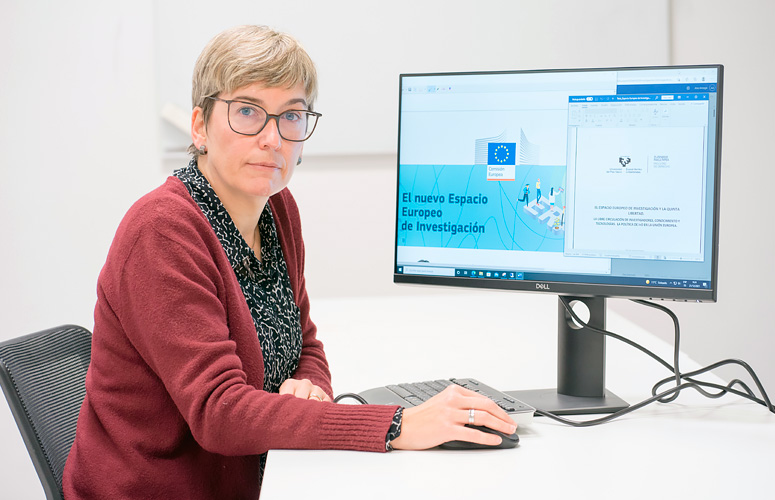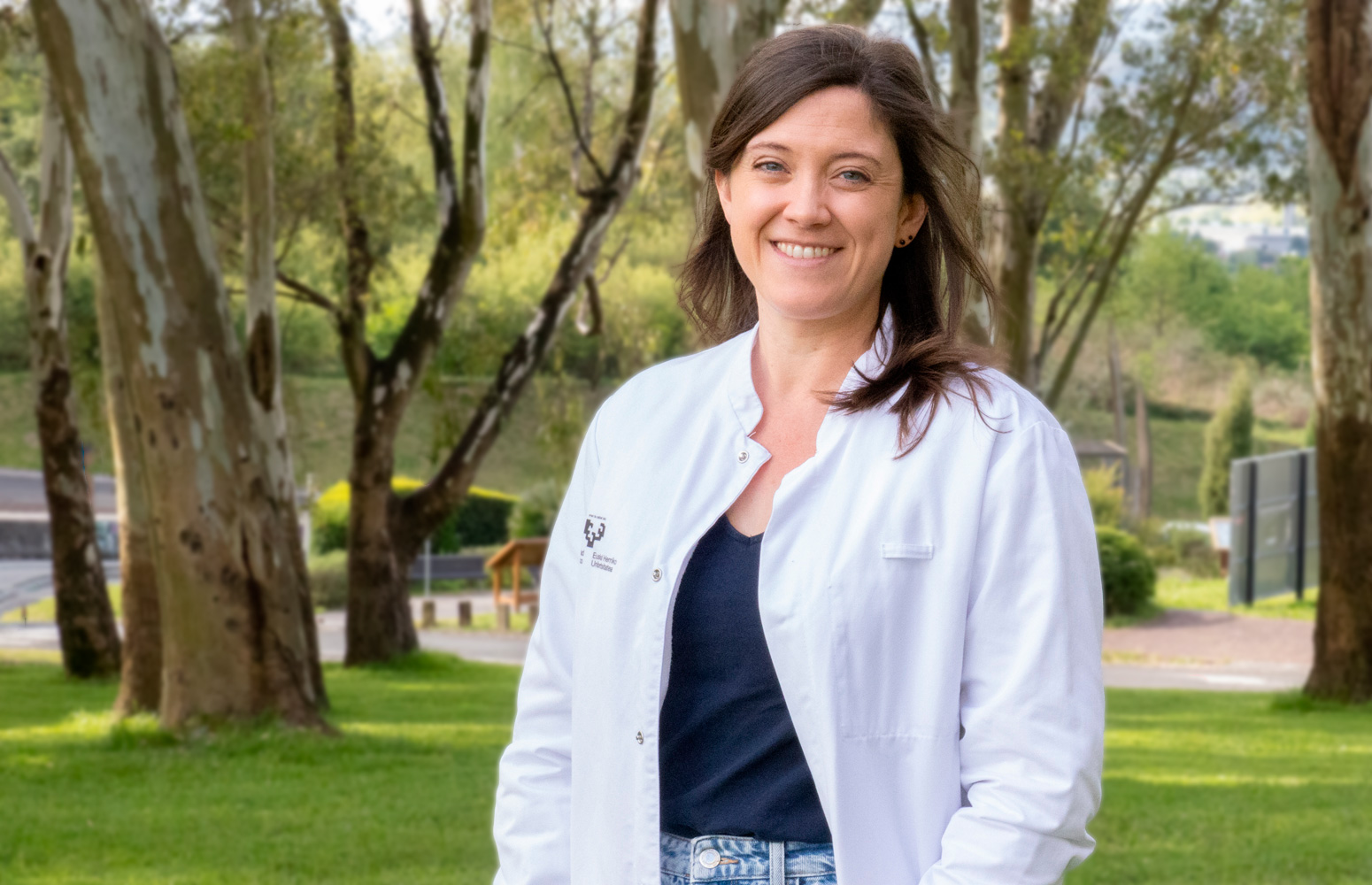A study carried out in the UPV/EHU's Department of Administrative Law, Constitutional Law and Philosophy of Law has examined the so-called European Research Area (ERA) in depth and has underlined the importance of the free movement of research personnel, knowledge and technologies for the economic and social development of the European Union.
European Research Area helps countries to be more effective by acting together
A study by the UPV/EHU-University of the Basque Country has explored R&D policy in the European Union
- Research
First publication date: 18/03/2022

Researcher Ana Arizaga-Batiz has studied the market of the European Research Area in order to better understand the research policy existing in the European Union. "The aim was to understand how R&D policy in the European Union was conceived, how it is developing and where it is heading over the next decade," said Ana Arizaga-Batiz.
"One of the greatest achievements of the European Union's integration process is the bringing about of an internal market where trade barriers between the States have been removed, where citizens, goods and services can move freely within European borders. In this context, the European Research Area (ERA) aims to take this achievement to the field of research and knowledge: to create a single, borderless internal market for research and innovation that fosters the free movement of research personnel, scientific knowledge, technologies and innovation, and promotes a more competitive European industry. The ERA helps countries to be more effective by acting together, by aligning their policies and research programmes," as the author of the study pointed out.
The dataset analysed in this work enabled "us to see that the European Research Area is a process that has neither a specified goal nor a precise objective, in fact it is designed to allow it greater dynamism and flexibility. It is a project that must be adapted to the policy agenda and the policy roadmap at each moment. It is something that is constantly evolving and is never fully completed, but at the same time it has a huge impact on the way R&D is done in Europe", explained Ana Arizaga-Batiz. Furthermore, "we saw that the next decade will be opening up some very interesting challenges and questions: the actions taken in R&D will not be sufficient since integrated, coordinated actions will be needed with other policy areas, such as education and industry, because knowledge is also generated in the education system and the results of any research must reach the market so that they can be transferred to the economy and social welfare", Arizaga Batiz added.
According to the author of the paper, "the analysis of all these data seeks to contribute towards anticipating the main characteristics and trends in the evolution that the European Research Area may display in the decade 2021-2030. It can be seen that the ERA is still very much present, perhaps not with the same strategic weight as when the project was launched in 2000, but research is now urgently being designed in order to deliver economic and social results.
Additional information
This study falls within the framework of the PhD thesis by Ana Arizaga-Batiz ('El Espacio Europeo de Investigación y la quinta libertad. La libre circulación de investigadores, conocimiento y tecnologías. La política de I+D en la Unión Europea'-The European Research Area and the fifth freedom. The free circulation of researchers, knowledge and technologies. R&D policy in the European Union), supervised by Juan Ignacio Ugartemendia-Eceizabarrena, lecturer in the Department of Administrative Law, Constitutional Law and Philosophy of Law at the UPV/EHU. Ana Arizaga Batiz currently works at the Tekniker Foundation.


